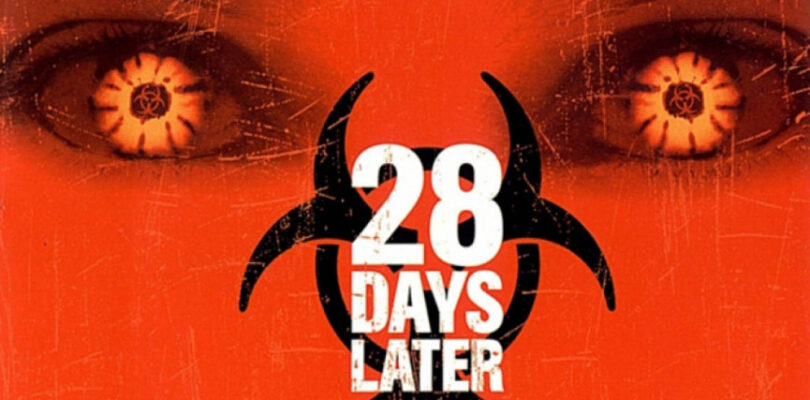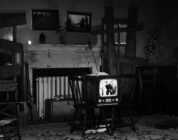After some 21 years, 28 Days Later has quite rightly earned its place as one of the best zombie movies of all time – as well as giving us a glimpse of what a deserted London would look like after a pandemic hits. An image that’s is scarily familiar to us all now, post Covid.
It’s hard to remember a time when zombies weren’t infecting both our big and small screens but before 28 Days Later in 2002, they’d been relegated to B-movie hell since the 80s It took a tiny budget and a daring reinvention of the genre (they run!) to reignite our love for the living dead which led to World War Z, Shaun of the Dead, The Walking Dead and the more recent The Last Of Us show and video game franchise.
The movie spawned a quasi-sequel, 28 Weeks Later, which doesn’t have the power of the first movie but is still a decent movie.
This week there was also news that both Danny Boyle and Alex Garland are working on another 28 Days movie called 28 Years Later.
In what would be the third film in the series – and there’s rumour they might try and round things off with their own third movie – Boyle had remarked in the past that he has a great idea for the new movie, noting to The Independent: “Alex Garland and I have a wonderful idea for the third part. It’s properly good… The original film led to a bit of a resurgence in the zombie drama and it doesn’t reference any of that. It doesn’t feel stale at all. He’s concentrating on directing his own work at the moment, so it’s stood in abeyance really, but it’s a you-never-know.”
Well, now we do!
While we still have some wait to see the finished article, here are 12 things you might not know about the surprise horror hit, which is, quite rightly, one of the best movies of the 2000s.
1. Going for a song
Megan Burns, who played the young girl Hannah, made her way into the music industry after the movie, as a singer called Betty Curse. Her highest charting entry was at #116 in the UK charts. She was last seen in the 2018 short movie In2ruders.
2. Trafalgar, squared
The mansion was actually Trafalgar Park near Salisbury. The scenes upstairs were shot downstairs, as the owners lived upstairs.
3. Day of the inspirations
Rather than associating it with other zombie movies, writer Alex Garland’s original inspiration was The Day of the Triffids, a book by John Wyndham that was made into a film in 1963. It tells the tale of a species of plant that starts to take over the world.

4. In the running
Danny Boyle cast athletes as the zombies so you could “sense the power” within them.
5. Desert storm
How did they manage those incredible deserted scenes of London on a £5 million budget? Police closed the roads at 4am and shooting started immediately, while there was nobody around and the light was just coming up.

6. Ryan Gosling nearly starred
Ewan McGregor was the first choice for the main role and after that didn’t work out, Ryan Gosling was the next choice but he had a scheduling conflict. Could we see either in the 28 years sequel? Here’s hoping!
7. And so did Robert Carlyle
Robert Carlyle was offered the role of Major West that ended up going to Christopher Eccleston. Carlyle then ended up starring in the sequel 28 Weeks Later.

8. Back story
Naomie Harris and Danny Boyle worked out a back-story for her character that was never used in the film. Apparently she was hardened by having to kill her infected parents in order to save her baby brother, who she then found out was also infected.
9. Zombie back flips
James McAvoy auditioned for a role in the film, except it wasn’t for the role he thought it was.”I thought I was going up for one of the leads but it actually transpired that I was actually reading for a featured zombie,” he revealed. “I was like, “Brilliant! Bring it on. It has come to this. I’ve made it… all the way to the fucking middle.” It said I could do acrobatics on my CV, so Danny said “Can you do a back-flip? I want to see.” He was trying to figure out how the zombies might move. So I gave him a back-flip, chatted for 20 minutes and never got the part.”

10. Comic timing
The film inspired a series of comics as well as a graphic novel called 28 Days Later: The Aftermath. The comics follow Selena as she lives in a refugee camp in Norway.
11. New endings
There was a rather depressing alternate ending that saw Cillian Murphy’s character die in an abandoned hospital. It was reshot as test audiences found it too downbeat but attached to US prints as an Easter egg late in the run. You can see it here.
12. Positive grains
The unpolished, grainy look of 28 Days Later was because a lot of the movie was shot on MiniDV – the tape of choice for homemade movies back in the late 90s, early ’00s. Boyle got his cinematographer’s to use a Canon XL1 digital video (DV) camera. These are much smaller and more manoeuvrable than traditional film cameras – think the complete opposite of what Chris Nolan used in the likes of Oppenheimer – which meant the film could be shot quickly when needed – ideal for the deserted shots – and it also meant that it was easier to shoot the movie in sequence, which is pretty much how 28 Days Later was made.
All image credits: Fox Searchlight Pictures




